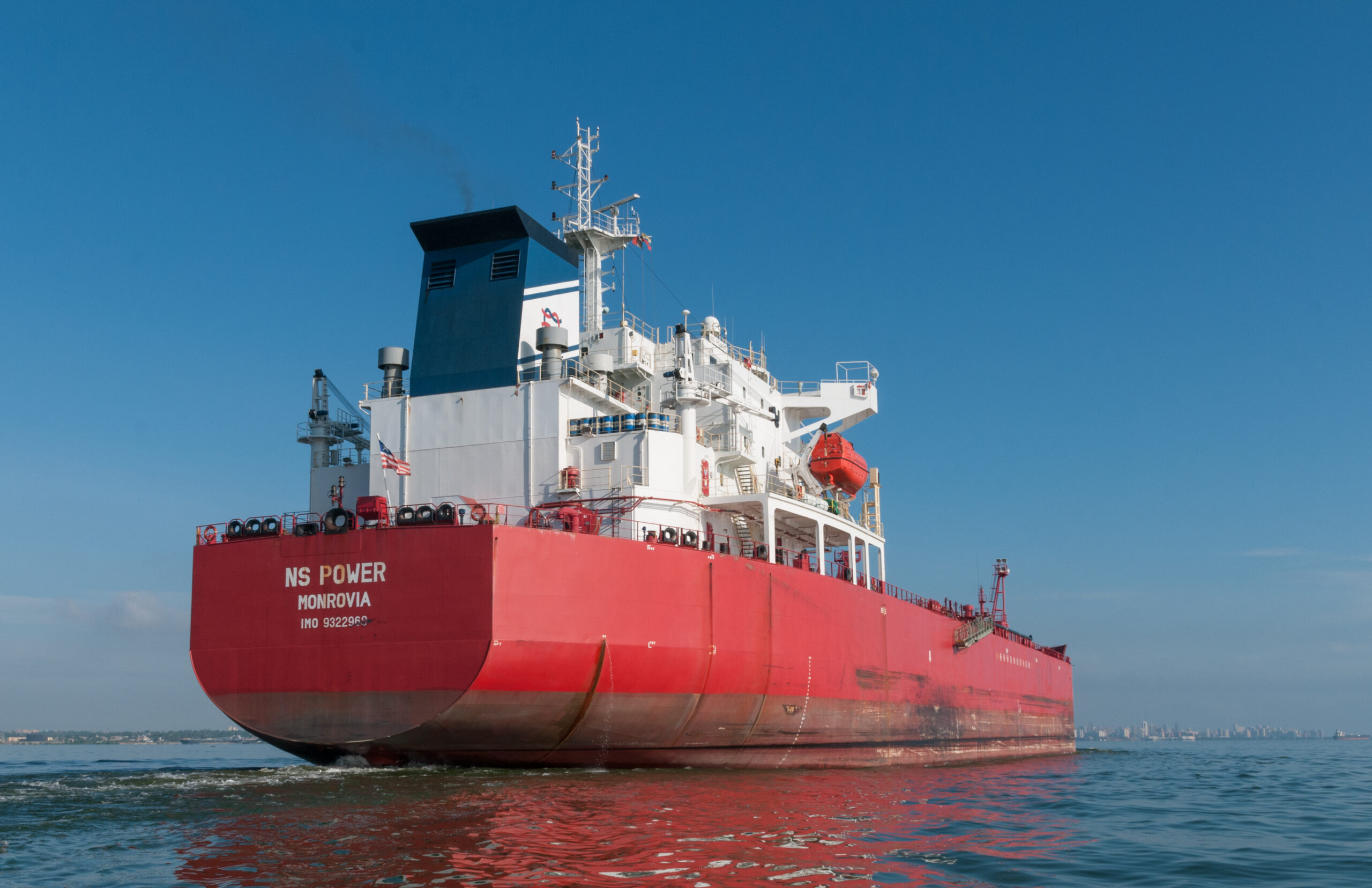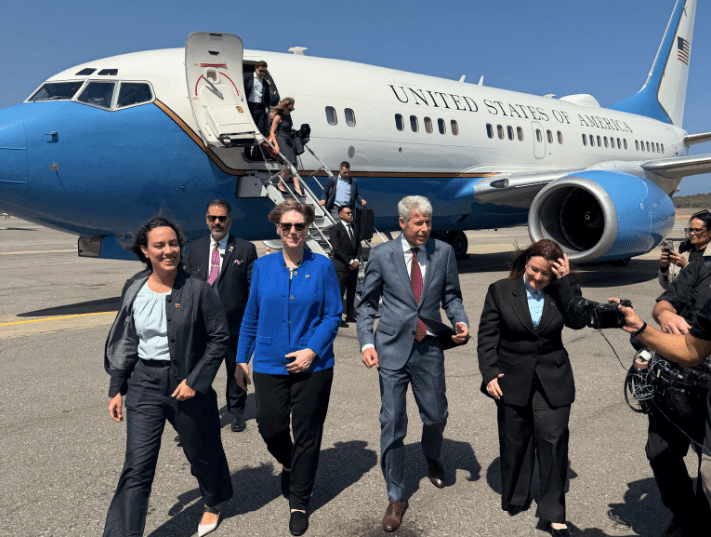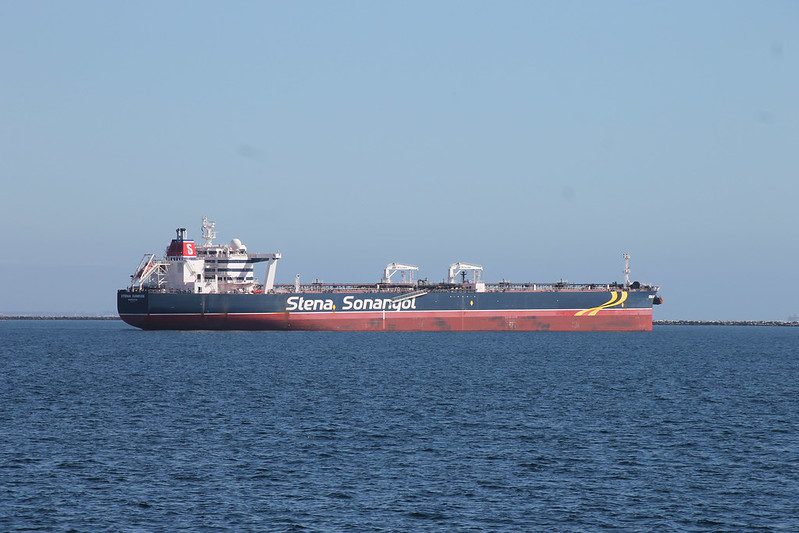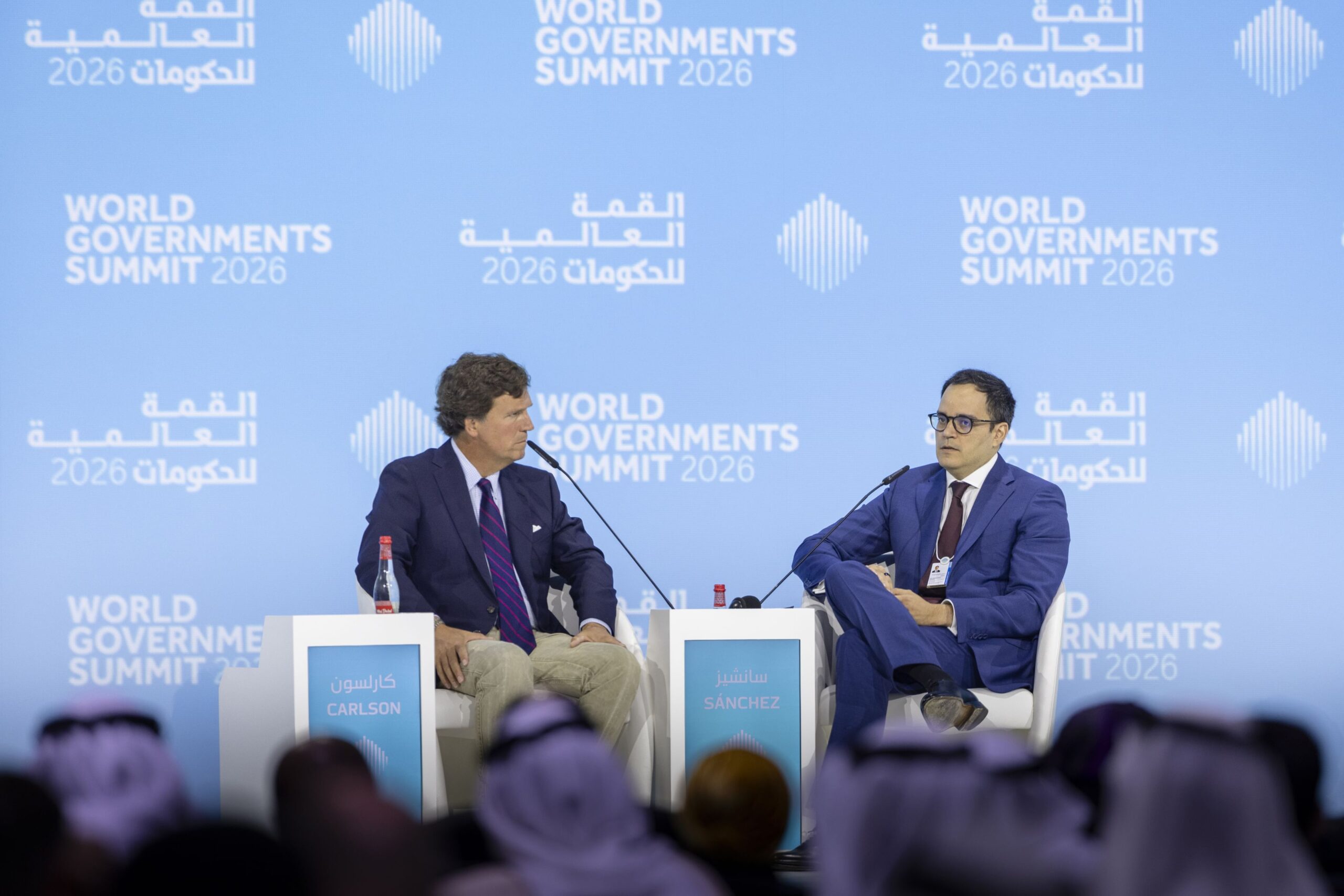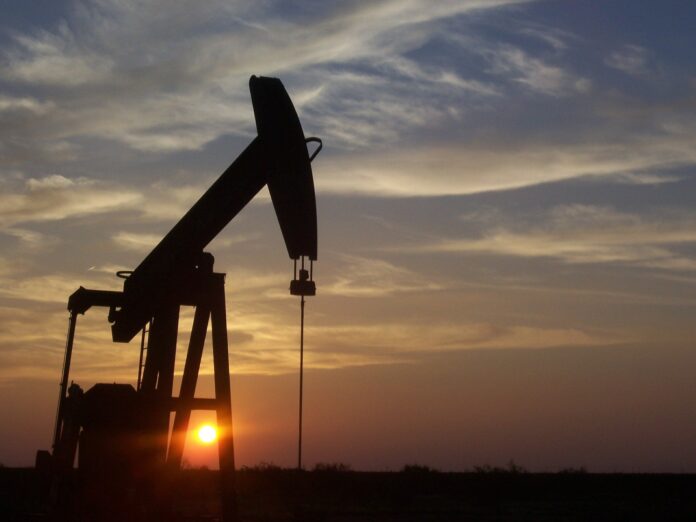An oil tanker crosses Lake Maracaibo, one of the most important hubs for hydrocarbons production. Photo: Wilfredor.
Guacamaya, March 31, 2025. Donald Trump has defended the secondary sanctions and tariffs imposed on countries that purchase Venezuelan oil or gas, arguing their “strong impact” on trade. However, this move—along with the recent decision to revoke licenses for transnational companies—has prompted immediate actions from these firms to maintain their operations in Venezuela.
The U.S. president stated in press remarks that “all the ships left and went away. Many of them left.” Along the same lines, he defended the effectiveness of the tariffs, arguing that “if you disobey our orders, you can’t do business in the United States.”
However, several oil traders in Venezuela report that Chinese company vessels have continued purchasing oil despite the threat of tariffs, directly contradicting Trump’s claims.
At the same time, the U.S. has notified the revocation of operating licenses in Venezuela for companies such as Maurel et Prom and Repsol, among others, creating uncertainty in the energy sector. Nevertheless, both companies have expressed their intention to explore legal alternatives to continue their operations in the country, emphasizing the strategic importance of their investments.
On one hand, Spanish firm Repsol, whose presence in the Latin American country has been primarily linked to natural gas, has received official notification that its authorization to operate in Venezuela will be revoked. Although it has not issued detailed statements, its CEO, Josu Jon Imaz, confirmed that the company is assessing the legal implications while maintaining communication with the U.S.
On the other hand, French company Maurel et Prom has also confirmed the revocation of its specific license, granted in May 2024. In a statement, the firm noted that it is in contact with its legal advisors and relevant authorities to analyze available options and minimize the impact on its activities.
The recent measures by the U.S. government also directly affect Italy’s Eni and India’s Reliance Industries. These companies had obtained special authorizations to process Venezuelan oil in their global refineries but will now have a transition period until May 27 to cease operations.
In response, Venezuelan Vice President and Minister of Hydrocarbons, Delcy Rodríguez, stated in a communiqué that these measures will not affect existing agreements with transnational companies. Rodríguez emphasized that “Venezuela does not recognize the extraterritorial jurisdiction of foreign governments” and that international companies do not require licenses to operate in the country.
Donald Trump also claimed that the measures imposed by his administration have driven Chinese vessels out of Venezuelan oil trade. However, according to traders consulted by Guacamaya—who requested anonymity—Chinese vessels continue purchasing Venezuelan oil, employing various strategies to evade sanctions.

